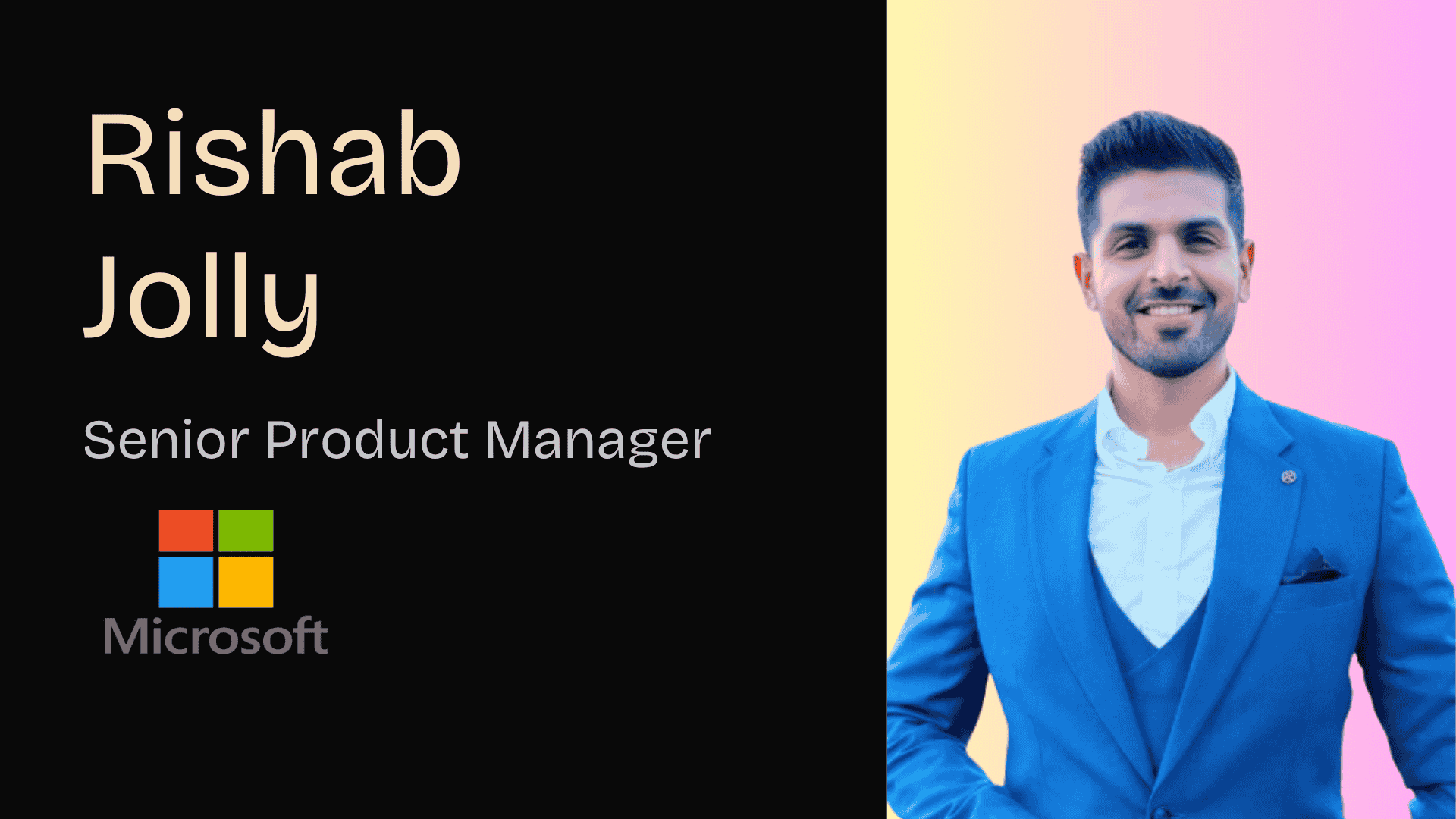Building 0-1 Products - AMA with Sagar Gupta
Hello folks! Welcome back to our weekly AMA series. This week we were elated to invite Sagar Gupta who is the Associate Director, Product at RazorpayX.
Sagar currently works as Associate Director, Product at RazorpayX (Neobanking arm of Razorpay) and has experience building 0-1 digital products, finding PMF and then scaling them beyond.
While building 0 to 1, focus is on building MVP at that stage or thinking about the MVP at scale as well? How would you typically go about it?
The question you should ask during the MVP stage is, what matters the most?
Your product or the market?
- A. In my opinion, the only thing that matters while building MVP is getting to product/market fit.
- B. If we need to focus on building MVP that can create value for the user, we need to launch fast and learn how your users react to it.
- C. Here, if you focus on building MVP at that stage, it lets you launch faster, and when you do finally automate yourself out of the loop, you'll know exactly what to build because you'll have learnings from the users on what they want.
What are some new channels for launching an MVP other than Product Hunt & other forums?
Before you answer this, think about which platforms do your users use? Are you a B2B product or a B2C product?
1. Typically your B2C product users won't be active on Product Hunt apart from the product community.
2. For example, if you are a B2B company focussed on startups, your users would be interested in YC/bootcamps. Here, you can launch an offering for startups who are in the initial stage so that you grow as they grow.
3. Similarly, if you have a B2C product say focussed on finding the best restaurants in a city, you will find your users subscribed to Insta channels like "What's hot in Bangalore" where you can target to advertise your product.
What's your favourite book or article on product management?
On 0-1 products, the best article I like is "Do things that don't scale" (Link) by Paul Graham and "The only thing that matters" (Link).
Both the above articles give you a framework on the mindset needed to launch 0-1 products.
Apart from these, few other articles I like:
Books that I would recommend:
- Blitzscaling
- Hooked
- The design of everyday things
- Thinking fast and slow (Must read. It's a slow read but will help you understand your users and their biases better)
Once an MVP is successful, do you have a framework around how you decide to scale without stretching yourself too thin?
Here, time and energy are the two limited resources we have. To make sure you don't end up stretching yourself thin, two things you need to focus upon:
- Ruthless prioritisation
- Radical delegation
I love the framework for delegation where you need to channelize your energy on the high impact/high important stuff first. While delegating, it's important that your team is feeling ownership and you establish clear accountability so that the team understands the importance and impact of what they are working upon.
For prioritisation after you have achieved your MVP, try to focus on a narrow market deliberately and create larger value for your users.
If you are able to create value for your users, you can hire as you grow.
Seeing the trend in neobanking, it seems that while it's easy to onboard customers by increasing the CAC spending, it's difficult to keep these customers engaged and increase the average revenue per customer. How's your team approaching and solving for this?
How are we approaching on getting higher LTV from customers:
- As we are a B2B neobank, we are targeting a specific user segment and user persona where we see a better fit and are focussing on solving their key problems.
- For example, as Razorpay has always focussed on startups, as part of NeoBank, we are consciously targeting "Tech first startups" where the focus is initially on Founders and accounting managers.
- Now for any tech enabled startups, the first problems they encounter is paying salaries for their small team and paying vendors/taxes. Thus, we launched specifically for these use-cases where for a smaller startup, we focussed only on solving their initial problems.
With open banking TPPs reducing the differences between the user experience offered by different banks on common use cases, what will be the differentiator that neo banks/ traditional banks will have to focus on to keep customers engaged on their own channels?
Differentiator that neobanks/traditional banks will have to focus on to keep customers engaged on their own channels:
- If you take a step back, the major challenges till now with banking system is, banking has been a "Context less dumb layer" while Business applications are "Context heavy" but don't have connections with banking systems due to high regulatory and secure tech requirements.
- For example, if an eCommerce company needs to pay 100 sellers, their systems will have the data but can't process the transactions.
- If traditional banks need to scale, they need to think about:
- A. How can they become smarter and build more context of user needs?
- B. How can they automate usual customer requests so that they don't need to spend time banking.
What is your strategy for creating a safe space to fail fast within your span? How do you create the culture at an organisational level?
To encourage fail fast, it's important that:
- The organisation and people are clear about what matters?
- Team is learning from every failure.
While working on products, we initially ask the PMs to be clear about what they are trying to achieve. Few things we ask the team to define while working on any product so that it becomes a standard process for the org:
- Be clear about the who and the why?
- Define a clear outcome and an objective success criteria for the product.
- Define the assumptions you want to validate with the launch (So that you objectively focus on validating assumptions you have defined)
- Define the trade-offs of launching your product (So that you are aware about the negative impact that can get created if the launch fails)
Answering above questions while defining the product helps the team and org to objectively approach each failure and not get emotional about it. This helps us to create a space that is continuously learning and evolving with failures.
What level of tech expertise is must to build a tech startup. Also, what level of tech expertise is suitable to lead the PM role for a company?
The level of expertise depends on the kind of technology you are building in your startup. You need to understand what's the core of your company. For example,
- For any eCommerce company, Supply chain and catalogue is core and Tech is an enabler to scale, give better suggestions when you have a larger catalogue.
- For a tech product, the initial product might not require DSA and you can do with basic understanding of technology. Complex tech will be required to solve complex problems which you don't need to worry about initially.
Also, you need to think about the skills your team as a whole has. To build a great tech startup, the team should have following capabilities,
- How to code and build.
- How to sell.
If you have any of the above skills, you can get a co-founder who compliments you on the other skill.
Answering the second half of the question,
PMs are the champs or the face of customers for an organisation.
If you are able to understand your customer’s needs/use-cases well and deeply and you are able to articulate them well, it's fine if you don't have a great expertise in Tech. Your EM will help you fill the gaps in Tech as they have the right expertise there.
--
Want to join the next conversation? We’ll be having another Product Chat soon, get your invite to our Slack community to get all the details. See you inside.
.gif)





.avif)
.avif)

.avif)
.avif)
.avif)

